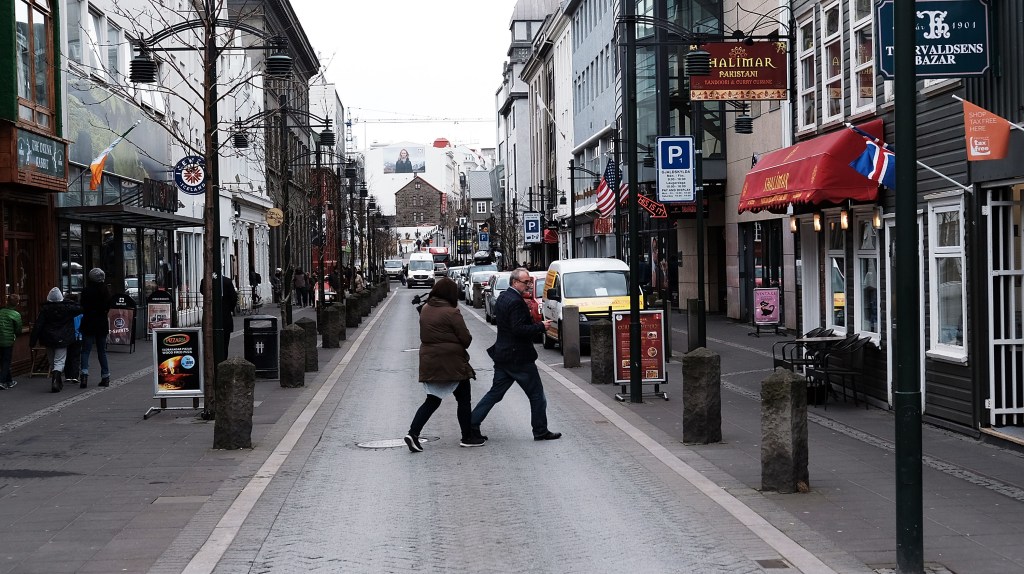This post was originally published on this site
Subscribe to Outbreak, a daily roundup of stories on the coronavirus pandemic and its impact on global business, delivered free to your inbox.
In the two months since COVID-19 began its rampage across the world, most countries, including the U.S., have opted to test only those people with active symptoms, telling others to self-isolate if they suspect they are infected with the coronavirus. Based on that approach, more than 480,000 people have tested positive for the virus since it first appeared in Wuhan, China, last December, including more than 68,500 in the U.S.
But what might authorities learn if people were tested randomly instead? Some early clues may be found in the tiny country of Iceland. So far, the country has tested 11,727 people—about 3.2% of its population of 364,000. It has done so in part by enlisting the country’s prized biopharma company deCODE Genetics to help tackle the crisis.

Since March 14 deCODE, a subsidiary of the California biotech giant Amgen, has offered a free coronavirus test to any Icelander, sick or healthy, who simply fills out an online form. DeCODE joined forces this month with Iceland’s public health authorities, which had been screening high-risk or sick people for the coronavirus since early February, weeks before even the first Icelander tested positive for the virus.
By screening healthy as well as sick people, say scientists, Iceland and deCODE have assembled a far more accurate picture of COVID-19. And the results are sobering. “The virus had a much, much wider spread in the community than we would have assumed, based on the screening of high-risk people,” deCODE’s founder and CEO Kári Stefánsson told Fortune by phone from his office in Reykjavík on Wednesday. As of Thursday, 737 have tested positive, or roughly 6.3% of all people tested in the country. Of those, 15 are in hospitals, two of them in intensive care. The rest—many of whom are asymptomatic—have been ordered to self-quarantine.
Stefánsson says the company aims in the end to test about one-third of Iceland’s population—the equivalent of the U.S. testing about 115 million people. He adds that deCODE’s testing has slowed down this week, as the company scrambles to restock its supply of cotton swabs, but will ramp up again within days. “Let’s assume about 3,000 people in the community are infected,” Stefánsson says. The idea, he explains, is to track every case. “To contain the infection for some period of time, we need to screen more, find those individuals, and quarantine them.”
The value of random testing
DeCODE’s model stands in sharp contrast to that of the U.S. and most countries in Europe, where only those who show clear signs of infection have been tested for the coronavirus. “If you don’t have symptoms, you don’t need a test,” Vice President Mike Pence said in a press conference on Sunday. Similar advice comes from the Centers for Disease Control and Prevention, whose website notes, “[N]ot everyone needs to be tested. Most people have mild illness and are able to recover at home.”
Stefánsson, 70, who was a professor of neurology at Harvard University before returning to his homeland to launch his company in 1996, rejects that strategy. He believes it leaves governments unable to understand how to control the spread of the coronavirus, since they have too little data to track its origins.
Until they do random testing, he says, “they do not have the faintest idea of how and why it is spreading in the society,” he says. “It is as simple as that.”
Stefánsson says that when Iceland began testing people in February, it expected to find infections among those who had returned from skiing trips to the Alps during the winter vacation, because an outbreak was then beginning in Italy and France’s Alpine region. Indeed, public health authorities did find infected vacationers. But Iceland also found a cluster of infections among people who had returned from England, as well as one from the U.S.—each of which presented with a separate mutation of the coronavirus. “As of yesterday, we have sequences for about 380 viruses,” Stefánsson says. The company plans to release the data on those mutations in the form of public databases this week.
Amid the fraught debate over self-quarantining, Iceland has remained curiously calm. It has no lockdown laws in place, simply urging people to remain at home if possible. Elementary schools remain open.
Rather than stress self-distancing above all, the focus has been on testing. “All countries should listen to the World Health Organization and follow the example of Iceland when it comes to the mantra ‘Test, test, test,’” former Prime Minister David Gunnlaugsson wrote in Britain’s The Spectator on Tuesday. He called the country’s testing strategy “virtually unparalleled anywhere in the world.”
Of course, Iceland’s minuscule population makes it far easier to test there than in most other countries—including even South Korea, where the swift control of the coronavirus among its 50 million people is credited in large part to the government’s aggressive testing and quarantine strategy. In an email, Iceland’s Health Ministry tells Fortune the country has tested a far higher proportion of its population than South Korea has, “yielding valuable insights into the behavior of the virus.”
DeCODE—and Iceland in general—is in an exceedingly rare position in its ability to analyze its findings on the coronavirus, and perhaps detect what makes some people more susceptible to infection and illness. That could be hugely valuable for scientists as they race to develop treatments and vaccines, and try to stave off any future coronavirus outbreak.
Since launching 24 years ago, deCODE has mapped the DNA of more than half the population of Iceland, “and we can infer data from the other half,” Stefánsson says. “We are in a reasonably good position to begin to explore if the susceptibility to the infection is in part genetically dictated,” he says. As scientists compare the DNA in deCODE’s data banks with the results of Iceland’s random coronavirus testing, the possibilities might begin to emerge.
“We are working on that, trying to generate a set of overlapping data,” Stefánsson says. “I don’t think there is another place where there is data like this.”
CORRECTION: Because of an an editing error, an earlier version of this story appeared with two versions of its opening paragraph.
More coronavirus coverage from Fortune:
—Will ‘The Great Cessation’ be worse than the Great Recession?
—Everything you need to know about the coronavirus stimulus checks
—Why Mark Cuban is focusing his time—and money—on coronavirus relief
—The world’s largest coronavirus lockdown is off to a rocky start
—The coronavirus has shattered the drug development status quo. We should build on that
—The $2 trillion coronavirus stimulus package isn’t green, but it helps
—Listen to Leadership Next, a Fortune podcast examining the evolving role of CEOs
—WATCH: World leaders and health experts on how to stop the spread of COVID-19
Subscribe to Outbreak, a daily roundup of stories on the coronavirus pandemic and its impact on global business, delivered free to your inbox.


